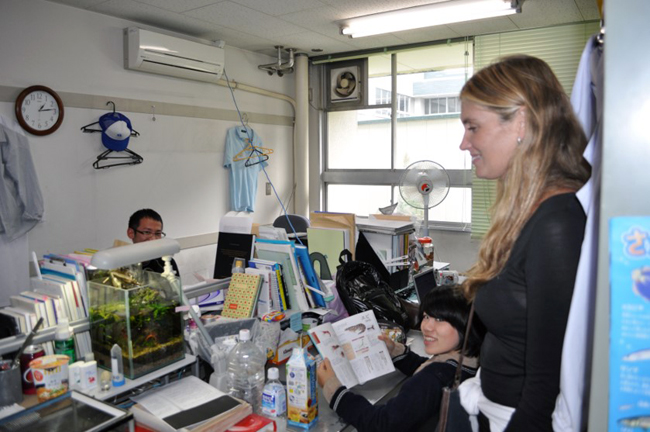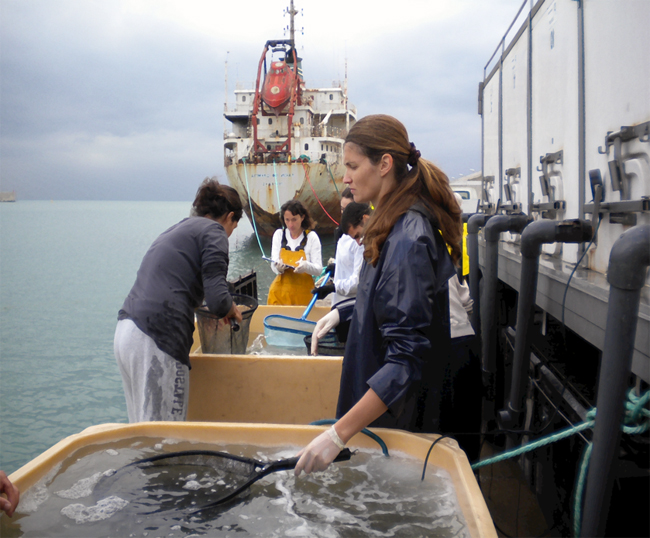We talked to Silvia Martínez Llorens, professor at the ETSEAMN and researcher of the University Institute of Animal Science and Technology (ICTA), which has recently obtained the “Excellence” award.teacher ETSEAMN”, awarded by the Social Council of the UPV in the XXII Edition of its awards.
- Good morning, first of all we would like to get to know you better so we ask you to introduce yourself to your colleagues, who is Silvia Martínez Llorens?
I have been working at the UPV for 21 years, it seems like yesterday when I decided to leave the engineering company where I was working and started here as a Ministry FPU scholarship holder. I am a happy person with my life, proud of my family, my friends and my work.. I consider myself a quiet person (80% of the time when I can, the other 20%, I’ll tell you another day…).
- What activity do you carry out at the school?
CurrentlyI am the director of the“Department of Animal Science”and at the school I collaborate in the teaching of subjects such as “Animal Production Technology” and “Effect of Climate Change on Mediterranean Ecosystems”.but in the part that refers to aquatic organisms and aquaculture. My teaching is mainly in the field of aquatic organisms and aquaculture.Interuniversity Master’s Degree in “Aquaculture”.in the subjects of“Facility engineering” and “Design and management of aquaculture facilities”.
- You have recently been awarded as the best teacher of the ETSEAMN by the Social Council of the UPV, what does this recognition mean to you?
Many times I don’t think I deserve it…. I have around me many colleagues with high teaching quality and who also put a lot of time and love into teaching. When I compare myself to them and think about the award, I feel a great weight of responsibility.
“Our lines of research include the production of feed without fishmeal and fish oil, the feeding of aquaculture organisms in early stages and the optimization of new, more sustainable and environmentally friendly production systems.“
- In addition to your teaching activity you also participate in R&D projects, what are your lines of research?
I belong to the group of “Aquaculture and Biodiversity” of the ICTA. Our lines of research cover the main challenges facing aquaculture: the production of feed without fishmeal and fish oil, the feeding of aquaculture organisms in early stages and the optimization of new, more sustainable and environmentally friendly production systems.
We work on the optimization of fish and crustacean production through production systems and feeding. Specifically, we try to look for ingredients to replace fishmeal and/or fish oil in the diet and evaluate the effects of this inclusion of new ingredients on the physiology and digestive health of aquaculture organisms.as well as in the rest of the productive, economic and environmental parameters.
Another line of research that we are developing is the production with low trophic level species, which need less protein and less fishmeal.The Biofloc system is considered to be a production system with minimal waste production and low energy requirements.
In the project I am currently directing:“Effect of Bacterial and Microalgal Populations on the Growth and Health of Species Produced in Bft, and Evaluation of the Potential Recycling of Biofloc Residues (TED2021-129272B-C21).”funded by the Agencia Estatal De Investigacion,we try to combine both low trophic level species produced in biofloc systems with the objective of producing species and zero waste.
“Aquaculture is clearly a growing sector. In fact, according to the FAO, aquaculture production currently already exceeds fish production.”
- In your professional experience, where is the aquaculture sector headed?
It is clearly an expanding sector, which will continue to grow at a high rate over the next 25 years.. In fact, according to FAO, aquaculture production now exceeds fish production.
However, in order to maintain this high growth,we are facing several technological challenges, in which research into new species, new production systems and new feeds will play a very important role in the development of aquaculture.. This challenge will require the involvement of a large number of professionals and researchers who can continue and develop these lines of research.
- How can your sustainability be improved?
Among the challenges ofaquaculture is the production of feed and the search for ingredients to meet the current demand, and future, and avoid dependence on fishmeal and fish oil from extractive fishing.Not only do we have to select ingredients that are both reasonably priced and highly available on the market, but also environmentally sustainable.

There is no “ideal” ingredient to replace these ingredients, but rather a mix of ingredients that can meet the needs of each organism being produced, which may include fermented feedstocks, hydrolysates, microalgae and other single-cell protein sources and insects.
Another option,is to work with low trophic level species, and/or in multi-trophic productions.The carbon footprint is considerably lower in the production of fish, crustaceans and algae, or even aquaponics plants, combining biofloc or recirculation systems, where the carbon footprint is considerably lower.In these productions, it is necessary to have a mastery not only of the physiology of the species produced, but also of the engineering of the production systems facilities,and their interactions with water parameters.
“I don’t have an inspirational phrase, nor a motto. What I do have are examples of people I admire for their knowledge, for their good work, for their character and that I would have liked to become with them….“
- Going into a more personal and relaxed side, what motto or phrase inspires you?
I am very sorry butI don’t have an inspirational phraseI have never had a motto that has served me well in my life. What I doI have examples of people I admire, for their knowledge, for their good work, for their character and that I would have liked to become with them…..
- Are you a user of social networks?
Not if I can help it.
- Pizza, with or without pineapple?
Pizza and pineapple are incompatible… it should be illegal.;-), as well as the mixed paella.
- In summer, air conditioning or fan?
Fan, cheap, sustainable and healthy.
- Vacations, sea or mountain?
Both work well for me on vacation. But if you have to choose,I choose sea and diving(no beach, no lying in the sun)…it comes to me from professional training.
- Finally, coffee, black or with milk?
Whatever, but without sugar or sweetener, because it camouflages the taste and if possible with friends or family.
